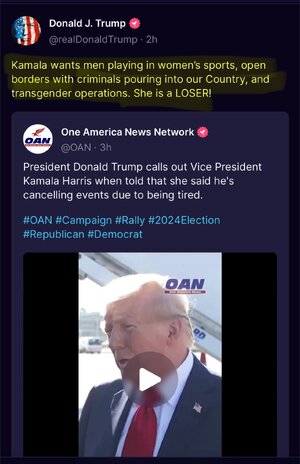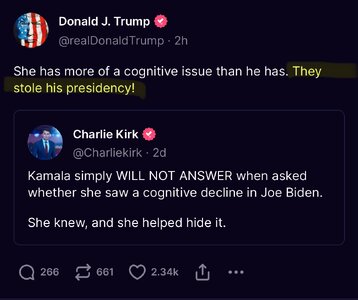1moretimeagain
Inconceivable Member
- Messages
- 3,940
Can you elaborate on this? The race was called in the middle of the night and she conceded the following morning. When was the initial push back against the results prior to her concession?Clinton (who I voted for in 2016) did initially push back against the results due to election interference and only conceded after Obama told her to. But it's true, it wasn't close to Trump's tantrum.


